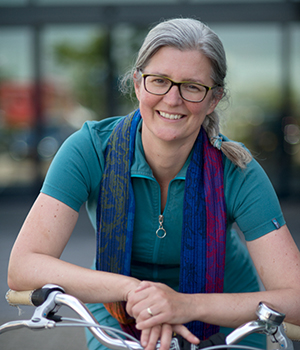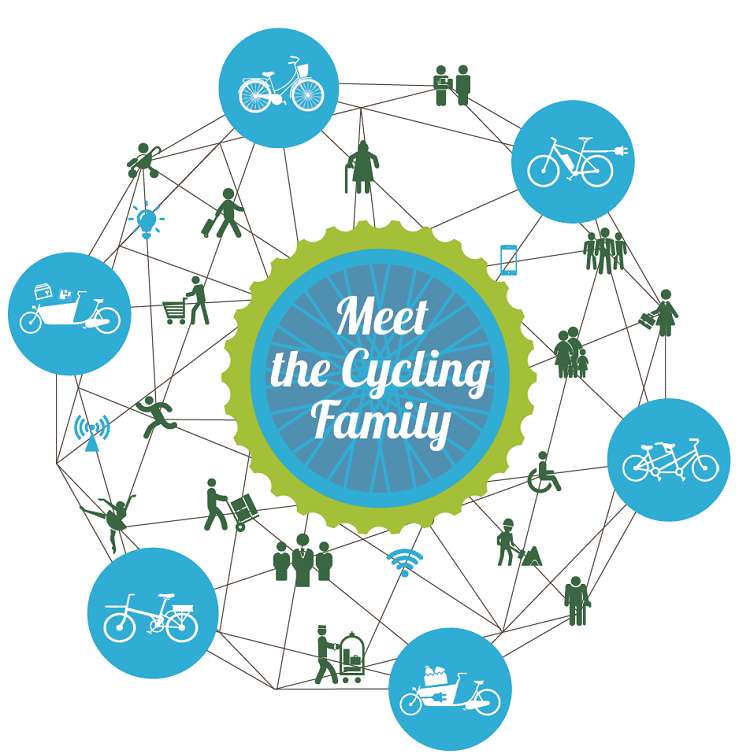Bicycle Policy
Municipality wanted for the first Bicycle-Family policy
Cycling diversity – are municipalities already taking this into account? Angela van der Kloof is looking for municipalities who want to work on a bicycle-family policy.
(This article has been translated from its original Dutch publication for Biind.nl, and is part of series of contributions by our subject matter experts on Inclusivity, Smart Mobility and Mobility as a Service (MaaS). Stay tuned for further article in the coming months, and follow Biind for original posts.)

The building blocks for an inclusive municipality can be found on the Association of Dutch Municipalities website. This is an overview of the tools, as examples, to work towards an inclusive society.
The theme of transport is further explained through three examples for these building blocks. Firstly: ensuring connections between the target transport group and regular transport. Secondly: starting a conversation with carriers about providing better information on public transport. The third point is cooperation. I would like to take the opportunity to add additional ideas to the building blocks. Those who know me will already understand that the bicycle is central.
The bicycle is no longer just the ‘oma’ bike (city bike), the racing bike and the mountain bike. An ever-increasing bicycle family has emerged which includes tricycles, cargo bikes, bicycle taxis and adapted bicycles, with or without pedal assistance and supplemented with a navigation system. The hand bike can also be counted among the bicycle family. For inclusive mobility, this development is a very good opportunity because more and more people can (continue to) cycle. This gives them a flexible, efficient and environmentally friendly alternative to the bus and taxi.
In concrete terms, this means that I am looking for the first municipality to work with to set up a Bicycle Family Policy 2019-2024. Traffic, social, recreation and sport departments will work together on this policy document, paying attention to what is needed to make the bicycle network and infrastructure family-proof and adaptable for those who need it. Where necessary or desirable, this is supplemented with inclusive bike-share concepts.

Then education comes into the picture to ensure that people are introduced to the entire cycling family, not just a few dominant members. This way they understand which options they (still) have; bicycle family education enables people to master the bicycle that suits them best. This plan should also include incentives to subsequently use the bicycle regularly in day-to-day life as well as for sport and recreation.
There are already various governments that take bicycle diversity into account when planning and constructing infrastructure. This is the case, for example, when developing cycle highways and cycle streets, which are wide and have a flat road surface. When it comes to education, more and more attention is being paid to keeping the elderly safe on their bikes, with the focus on the electric bike. As far as I am concerned, the target group, but also the type of bicycles focused on, must be broadened.
When it comes to bicycle ownership, we have a range of initiatives, such as the Fietsenbank in Rotterdam and Maastricht and the Children’s Bicycle Plan of the ANWB. How to deal with such initiatives, especially in the long term, must also be given a place in the Bicycle-Family policy plan. The exploration that I recently carried out with Kamieke van de Riet van Zet outlines where we are can start to think about it.
These examples are just the beginning. I look forward to the further exploration!


 ">
">